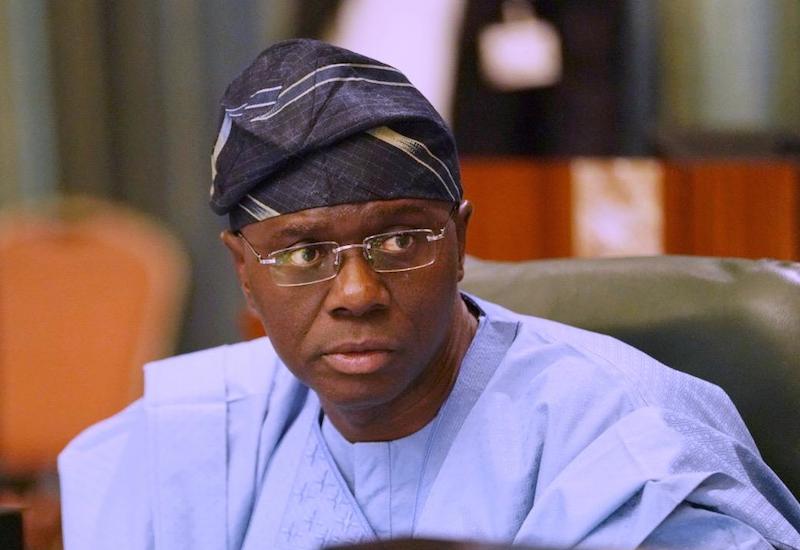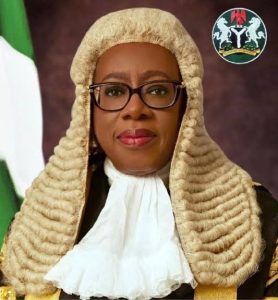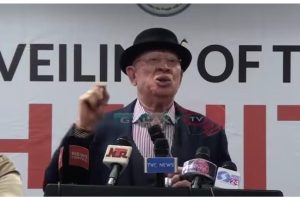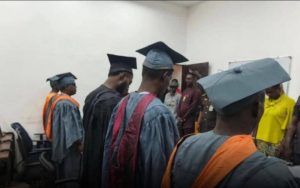By Damilare Adeleye
Governor Babajide Sanwo-Olu of Lagos State has sued the Economic and Financial Crimes Commission (EFCC) over an alleged threat to arrest, detain and prosecute him after his tenure as governor.

It was learnt that the governor filed his fundamental right enforcement suit before Justice Joyce Abdulmalik of a Federal High Court sitting in Abuja.
When the matter was called for mention on Tuesday, his lawyer, Darlington Ozurumba, told the court that he had withdrawn the earlier originating summons filed and replaced it with a new one.
The lawyer said the anti-graft agency had been duly served with the latest court documents.
However, EFCC’s counsel, Hadiza Afegbua, said she was yet to see the documents.
Subsequently, Justice Abdulmalik adjourned the matter until November 11 for further mention.
It was reported that in the originating summons, marked: FHC/ABJ/CS/773/2024 dated and filed on June 6, the governor raised seven questions and sought 11 reliefs.Sanwo-Olu sought a declaration that under and by virtue of the provisions of Section 37 of the 1999 Constitution, “the plaintiff, as a citizen of Nigeria, is entitled to the right to private and family life as a minimum guarantee encapsulated under the Constitution of the Republic of Nigeria, 1999 before, during and after the occupation of a public office created by the Constitution.”
He wants the court to declare that under and by virtue of the provisions of Sections 43 and 44(1) of the 1999 Constitution, he is entitled to acquire, own, operate and manage both moveable and immovable property.
This, he said, includes bank accounts, as a minimum guarantee encapsulated under the constitution either before, during or after leaving the public office of governor of a state.
He also wants the court to declare that upon community reading of the provisions of Sections 35(1) & (4) and 41(1) of the constitution, the threat of his investigation, arrest and detention by the EFCC during his tenure of office as governor is illegal.He also said that the plan to arrest him was unconstitutional and a flagrant violation of his fundamental right to personal liberty and freedom of movement as guaranteed under Sections 35(1) & (4) and 41(1) of the Constitution of the Federal Republic of Nigeria, 1999 ( as amended).
The governor prayed the court to declare that the incessant harassment, threat of arrest and detention, against him upon the EFCC’s instigation by his political adversaries based on false and politically motivated allegations of corruption is a misuse of executive powers and abuse of public office.
He further wants the court to declare it as an unwarranted Interference with his fundamental right to personal liberty, freedom of movement, fair hearing and equal protection of the law as guaranteed by the constitution and the African Charter on Human & Peoples’ Rights, CAP A9 LFN 2004.
Sanwo-Olu, therefore, sought an order restraining the EFCC from harassing, intimidating, arresting, detaining, interrogating or prosecuting him in connection with his tenure as the governor of Lagos State.
He also prayed the court to make an order prohibiting and restraining the commission “from seizing the properties, the international passport and travel documents of the plaintiff or freezing the bank accounts of the plaintiff, his family members or in any other way to further breach the plaintiff’s fundamental rights guaranteed under the Constitution.”
He urged the court to make an order restraining the EFCC from inviting, arresting or detaining him in connection with his tenure as governor of the state or breaching his fundamental rights to personal liberty, fair hearing, private and family life, freedom of movement, acquisition of moveable and immoveable property as enshrined in the laws.
Babajide Sanwo-Olu was sworn in as the Governor of Lagos State on May 29, 2019, and was re-elected and sworn in again for a second term on May 29, 2023.

























